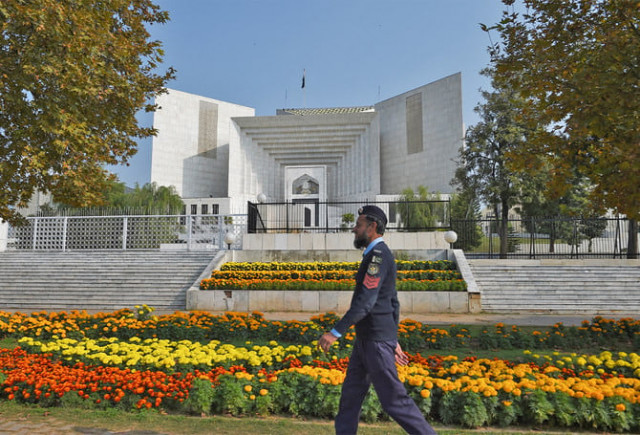Top court to take up ECP poll plea on 15th
Electoral watchdog did not hold Punjab election on May 14 despite SC order

All eyes will be on the Supreme Court on May 15 (Monday), as it will take up the Election Commission of Pakistan’s plea requesting the top court to revisit its order of holding Punjab Assembly elections on May 14.
A three-member bench comprising Chief Justice of Pakistan Umar Ata Bandial and Justice Ijazul Ahsan and Justice Munib Akhtar will hear the ECP’s plea.
On April 4, the same bench had quashed the ECP’s decision to extend the poll date from April 10 to Oct 8 and fixed May 14 as the new date for it.
The bench had also directed the government to release Rs21 billion funds for holding the elections in Punjab and Khyber-Pakhtunkhwa.
However, the ECP had apprised the court that the coalition government was reluctant to release the funds.
It contended that holding separate elections in Punjab and K-P would incur more expenses as compared to holding them on the same day.
On May 3, the ECP filed a plea asking the apex court to review its April 4 order.
Earlier during the month, the government and the Pakistan Tehreek-e-Insaf developed a consensus on conducting elections across the country on one day but failed to agree on a date for holding them.
The ECP in its review plea said that changing the election schedule was its domain under Section 58 of the Elections Act 2017.
“All provisions of the Constitution are required to be read together in harmony to make the provisions effective, workable and meaningful,” the plea stated.
Read Imran Khan produced in SC amid tight security in Al-Qadir Trust case
It explained that Punjab and K-P had 173 and 55 National Assembly seats, respectively, out of a total of 326 seats, which made the seats of both the assemblies around 72% of the NA’s total strength.
The plea stated that the general elections to the NA were due in the near future, as it was completing its term in Aug 2023, adding that the ECP required the government machinery which was non-partisan to conduct them fairly and in accordance with the law.
It urged the court to consider ground realities in true perspective because if the polls were held while permanent govenrments were in place in both the provinces, the sanctity, objectivity and fairness of the elections to 72% of the general deats of the NA would be compromised.
The petition emphasised that the courts interpreted the law but they did not rewrite it. As per the interpretation of the provision of Section 58, change of the election schedule or giving a fresh schedule, of which poll date was an essential component or stage, was the domain of the ECP.
“Under no provision of the Constitution or the law, the Supreme Court could have taken the exercise upon itself to appoint the poll date through the April 4 order. The Constitution is an organic document, it blossoms and evolves with time.”
It added that the appointing of a date or changing it was an executive exercise, and certainly not a judicial one.
The appointing of a date or changing it is an executive exercise, and certainly not a judicial exercise, the petition emphasised.



















COMMENTS
Comments are moderated and generally will be posted if they are on-topic and not abusive.
For more information, please see our Comments FAQ